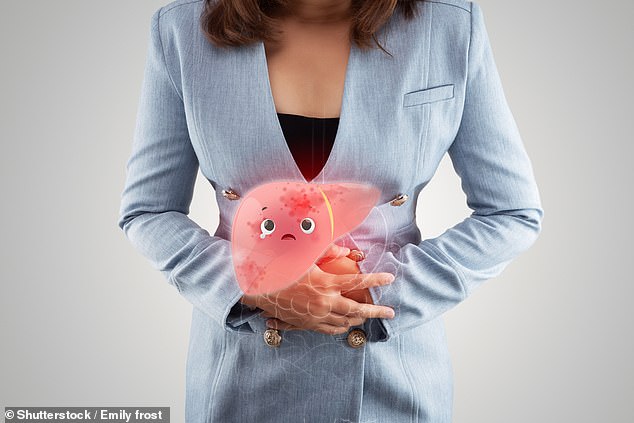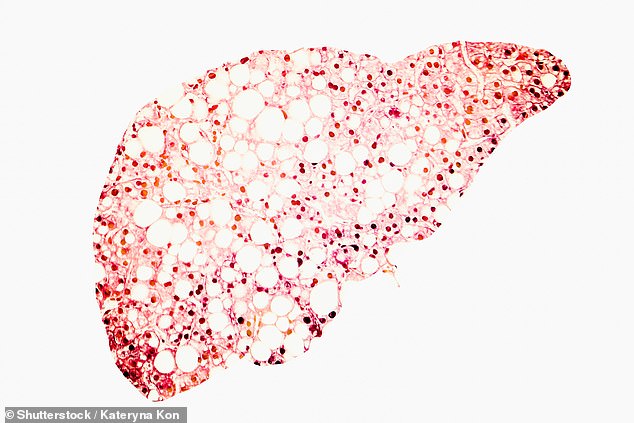Menopausal women who experience severe hot flashes or night sweats are up to three times more likely to develop liver disease, research shows
Menopausal women who experience severe hot flashes or night sweats are up to three times more likely to develop some form of liver disease, scientists say.
Experts have found that those who experience the uncomfortable side effects – also known as vasomotor symptoms – have a threefold risk of non-alcoholic fatty liver disease (NAFLD) compared to those with mild symptoms.
NAFLD, a condition in which fat builds up in the liver, can cause serious damage and has been linked to an increased risk of diabetes and high blood pressure.
There is increasing evidence that patients with NAFLD are at significant risk for coronary heart disease and irregular heartbeat.
Menopausal women who experience severe hot flashes or night sweats are up to three times more likely to develop some form of liver disease, scientists say (stock photo)

Experts have found that those who experience the uncomfortable side effects have a threefold risk of non-alcoholic fatty liver disease compared to those with mild symptoms (stock photo)
Lead author of the study, Dr Eleni Armeni, from Kapodistrian University of Athens, said: ‘This study contributes to understanding the link between vasomotor symptoms and cardiometabolic risk factors.
‘It is crucial for the public as it highlights how hot flashes and night sweats can indicate an increased risk of heart and metabolic problems.’
Her team analyzed 106 menopausal and postmenopausal women. They found that people with moderate to severe hot flashes or night sweats had a three times higher risk of developing NAFLD compared to people with mild symptoms.
This was even after taking into account whether women were taking hormone replacement therapy (HRT), how old they were and how much exercise they did.
‘Women who experience these symptoms should consult a healthcare professional to address this and assess their cardiovascular health,’ Dr Armeni added.

NAFLD, a condition in which fat builds up in the liver, can cause serious damage and has been linked to an increased risk of diabetes and high blood pressure (stock photo)

Growing evidence suggests that patients with NAFLD are at significant risk for coronary artery disease and irregular heartbeat (stock photo)
The researchers hope their findings will encourage health professionals to provide care to menopausal women, beyond discussions focused solely on HRT.
In December, a drug that combats hot flashes was approved in Britain. Fezolinetant, sold under the brand name Veoza, is a daily pill that regulates a brain receptor that releases hormones that regulate body temperature.
It has not yet been recommended for use by the NHS.
